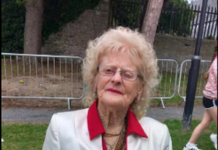LIMERICK COVID-19 contact tracers are encountering incidents where some people are ignoring their calls; are not disclosing how they may have got the virus; and are not revealing other close contacts, according to a senior official at the Department of Public Health.
Some people may also be denying they are a close contact of a confirmed case, “out of fear that the workplace may suffer due to reduction in staff numbers or temporary closure,” warned Dr Mai Mannix, Director of Public Health Mid West in a briefing document sent to politicians on February 17th.
Dr Mannix, revealed that her team of contact tracers in the Midwest region “encounter challenges” such as “people not answering their phones, reluctance to reveal their close contacts, and occasionally people not wanting to disclose how they may have been exposed to the virus”.
“If someone was infected at a house party, they may be hesitant to divulge that level of detail,” Dr Mannix stated.
Other challenges can be “establishing close contacts in workplaces, particularly small ones, where some work colleagues may deny being a close contact, out of fear that the workplace may suffer due to reduction in staff numbers or temporary closure”.
Dr Mannix said that, although the “incidence rate in the Mid-West has fallen considerably, the rate of decrease has slowed considerably, and remains stubbornly high, we are still seeing high levels of infection arising out of transmission in households and workplaces.”
She also warned that her department is “still managing serious outbreaks in (Long Term Care Facilities)”, and that, “the new variant seems to be more transmissible with higher numbers of infections from each new case”.
“In some workplaces, adherence to public health guidelines falls short in a number of areas, namely the wearing of masks while working and when sharing vehicles with colleagues, and in some instances, we are seeing poor social distancing, particularly while working and in breakrooms.”
Dr Mannix urged all employers “to facilitate remote working, where possible; we are also asking workers to wear masks in communal areas at all times, regardless of social distancing or measures such as Perspex screens”.
She warned that “a large number of new clusters are arising out of regular household visits, across all age groups“.
“This is the pattern we are observing in the student population, where spread is occurring off campus”.
“Though we are starting to somewhat flatten the curve, we are still recording a significant number of people becoming seriously ill, and vulnerable people dying with this disease.“
Dr Mannix also highlighted that, “in line with international evidence, there is a high risk of infection in socially marginalised communities and groups, more so than those who reside in more affluent areas, due to, household overcrowding; low income; and employment instability and insecurity”.
Last month, there were 8,912 confirmed cases in the Midwest — that is 2,000 more cases in the region for all of 2020.
There were 259 deaths linked to COVID-19, and 16 possible/probable COVID-19 deaths, between March 4, last year and February 1, this year.
There were 146 Covid-related deaths recorded in the region for the whole of 2020, while 128 Covid-related deaths have been recorded recorded for all of last month.
While there have been 16,688 confirmed cases in the region since last March, around 10,000 of these were recorded in January and February this year.
Last month there were 45 outbreaks in long-term care facilities in the region. Approximately 350 cases last month were linked to 13 outbreaks in nursing homes.
“There was a significant increase in mortality among people living in LTCFs in January,” Dr Mannix reported.











